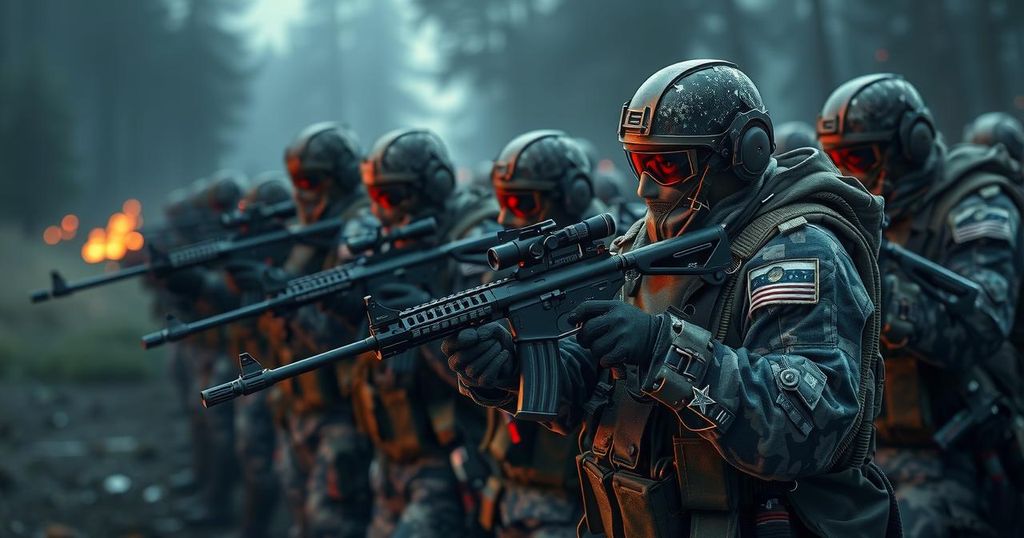Future Prospects of the Wagner Group Following Failed Rebellion in Russia

The Wagner Group’s recent failed rebellion marks a pivotal moment for the organization, leading to divisions among its fighters. Many are reportedly heading to Belarus with Yevgeny Prigozhin, while others prefer to stay in Russia. Economic concerns may hinder integration into the Russian military, and analysts suggest Wagner could adapt its operations abroad, particularly in Africa, potentially independent of Prigozhin. The group’s resilience amid these challenges points to a complex future ahead.
The recent armed uprising led by the Wagner Group fizzled out in under 36 hours, stabilized by a deal allowing its leader, Yevgeny Prigozhin, to seek exile in Belarus. Despite the rebellion’s failure, analysts contend that the mercenary group may continue its operations, possessing a foothold across Eastern Europe, Africa, and the Middle East. As many as 1,000 fighters are reported to have followed Prigozhin to Belarus, while others remain in Russia, complicating their integration into the official military forces. With compensation being a primary concern, numerous Wagner recruits are hesitant to join the Russian army due to lower pay compared to paramilitary groups. Future scenarios for Wagner may involve a restructuring or renaming as it retains its interests abroad, particularly in conflict-prone regions in Africa. Prigozhin’s fate is uncertain, with speculation that the organization can persist independently of his leadership, given the existence of various competing paramilitary entities in Russia.
The Wagner Group’s recent rebellion against the Russian military has drawn significant attention, especially regarding its implications for the group’s future. Established as a private military organization, Wagner has been known for its operations in various conflicts globally, particularly in Africa and the Middle East. The quick dissolution of the uprising reflects internal tensions within Russia’s military and political landscape, with President Putin’s administration taking steps to manage the aftermath. Prigozhin’s potential exile raises questions about the operational capabilities of Wagner and the status of its mercenaries.
The aftermath of the Wagner Group’s failed rebellion presents multiple potential pathways for its future: a significant portion of its fighters may opt for Belarus or remain affiliated with the group, while economic motivations could dissuade them from joining Russian military ranks. Additionally, Wagner’s operations beyond Russia are likely to continue, possibly under a different guise. Prigozhin’s uncertain future implies that the organization’s operational continuity may rely on its proven adaptability amidst changing political landscapes.
Original Source: telegrafi.com







